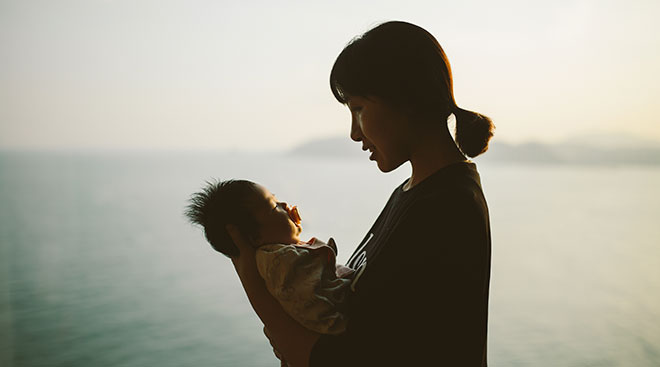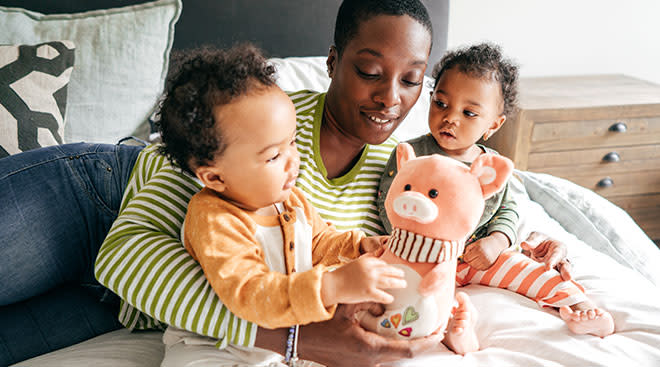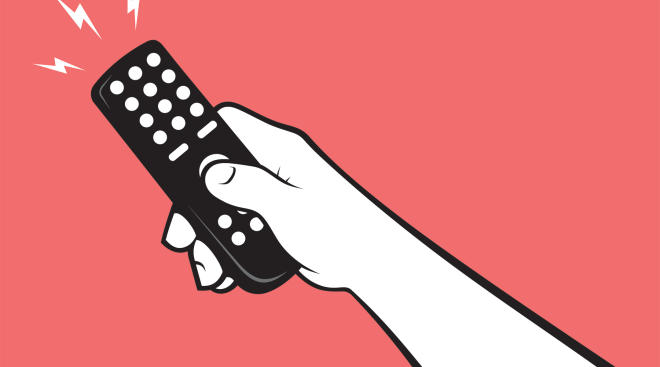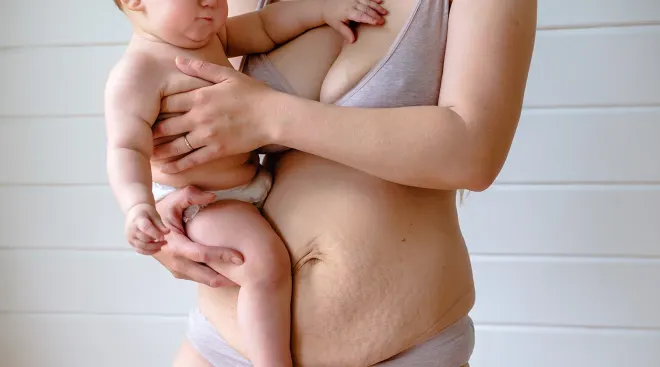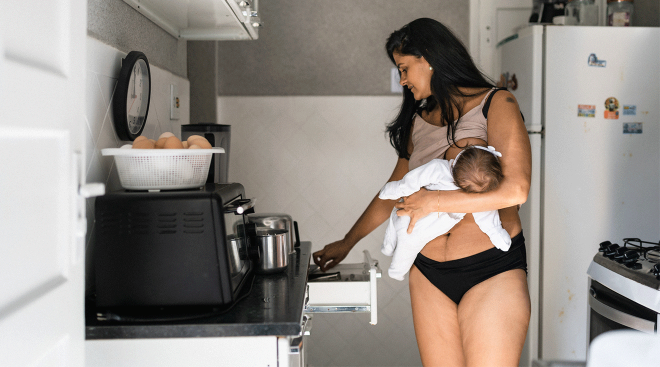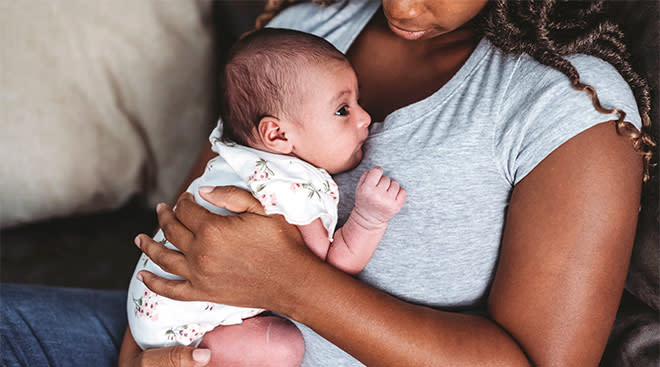Adjusting to Motherhood May Take Longer Than You Think (and That’s OK)
Becoming a parent is a big life change, so it’s a given that it’ll take some time to get used to. According to a study led by the baby brand Munchkin, on average it takes most new moms four months and 23 days to adjust to motherhood, a new baby and a new lifestyle.
According to survey results, after nearly five months postpartum, most new moms settle into their new routines and gain confidence in their parenting abilities: They learn what baby’s different cries mean; they stop worrying about dealing with baby in public; they learn to be armed more snacks, spare clothes and diapers than they could ever dream; and they also get over the hump of exhaustion, tears and frustration that come with new motherhood. Of course, everyone is different, so it makes sense that every new parent will adjust to life with baby on their own timeline. It may take longer (or shorter!) for some parents, and that’s totally okay.
“Becoming a mom for the first time leads to a flurry of mixed emotions, and it can naturally be completely overwhelming,” says Claire Rayner, a spokeswoman for Munchkin. “It’s one of the best things that can happen to someone, but it can understandably be very scary too.”
Researchers found that during pregnancy, one out of every two moms-to-be admitted they were nervous and scared of becoming a mother, while one in four said they were completely daunted by motherhood. What’s more, more than half of the women polled during pregnancy admitted to being overwhelmed after they gave birth. In fact, 57 percent said that their first few months after baby was born passed by in a “bit of a blur” because they were so worried about getting everything right.
“It’s a massive change, and the floor of self-doubt and worry is perfectly natural,” Rayner says, “but the fact they care so much only proves what good moms they’ll eventually develop into.”
Two-thirds of the moms surveyed admitted that the worry and exhaustion that came with being a new parent led them to burst into tears. Looking back, though, six out of 10 say they wish they hadn’t worried as much as they did at the time.
Some other interesting facts from the study:
- 47 percent of new moms were surprised at the amount of time it took for them to properly get the hang of motherhood.
- Six in 10 experienced a period of time where they worried that they weren’t capable of being a mom.
- A third of the moms who participated in the Munchkin study felt so worried that they at some point confided in a friend or family member that they didn’t think they were a good parent.
- A fifth of the mothers didn’t talk to anyone about their worries because they didn’t want to be thought of as failing or to admit they were struggling in their new role.
- One in five new moms felt that their partners settled into the role of parenthood quicker than they did, which led them to be envious.
"It’s perhaps reassuring that so many moms went through the same period of worry, as it shows just how common a reaction it is to feel that you might not cope,” Rayner says. “What is important is not being afraid to voice those worries, and let your friends, family and support network help you as much as they can. It’s always going to take time to adjust, but the more ways they can find to help them cope, the quicker that feeling of confidence in being a mom will develop.”
While finding a support network is important for any new parent, it can be even more so for new moms struggling with the baby blues or postpartum depression. While the baby blues may last for a few days or weeks after birth, postpartum depression can last months or even years after birth.
According to the CDC, one in eight women experience symptoms of postpartum depression, which can include feeling empty, overwhelmed, sad and unable to focus. These symptoms can come on within days, weeks or even months following birth, and can certainly affect your emotional transition into motherhood. It’s important to raise these feelings with your doctor to get the support and treatment you need.
The entry to parenthood can be very challenging. It’s a rocky road, but everyone’s path will look a bit different, and your adjustment period may be longer or shorter than others’. Either way, you’ll get there—and until you do, keep reminding yourself that you’re doing great.
Please note: The Bump and the materials and information it contains are not intended to, and do not constitute, medical or other health advice or diagnosis and should not be used as such. You should always consult with a qualified physician or health professional about your specific circumstances.
Plus, more from The Bump:
Navigate forward to interact with the calendar and select a date. Press the question mark key to get the keyboard shortcuts for changing dates.
































